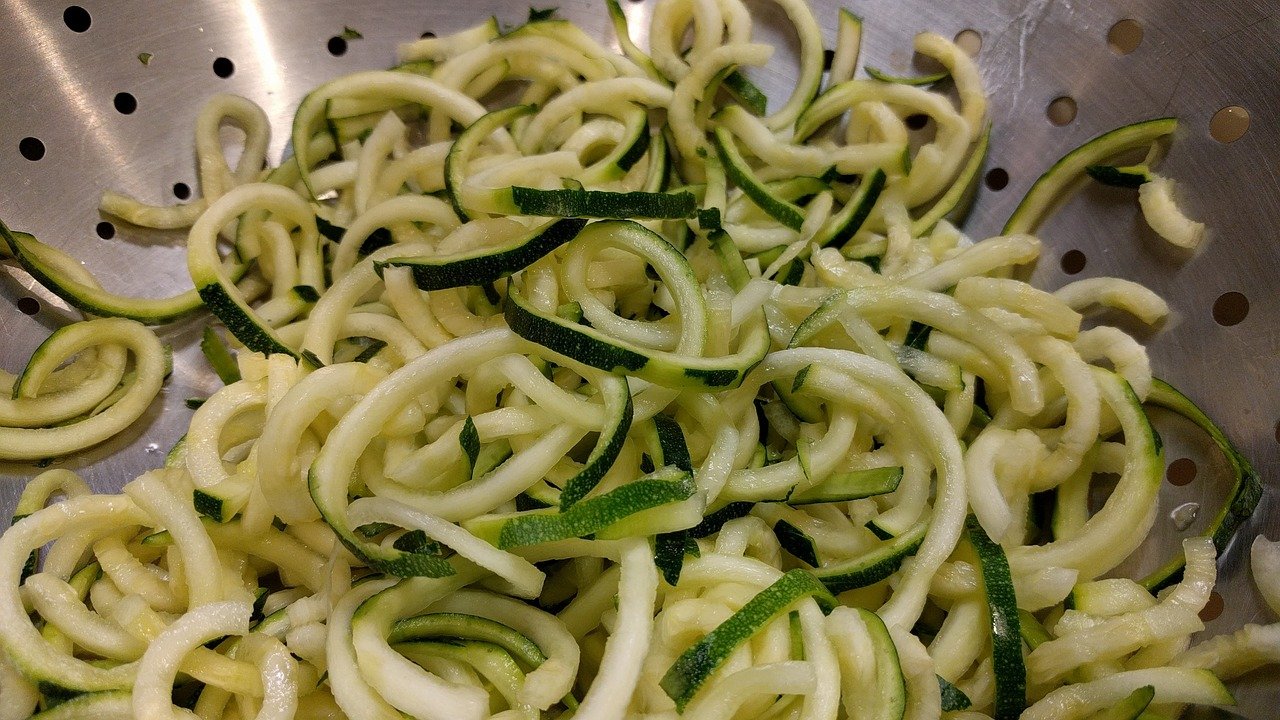Zucchini is rich in fiber, which is crucial for a healthy digestive system. Fiber adds bulk to your stool, promoting regular bowel movements and preventing constipation. It also helps feed the beneficial bacteria in your gut, supporting a healthy gut microbiome.
4. Antioxidant properties
Zucchini contains antioxidants, such as vitamin C and beta-carotene, which help protect your cells against damage from harmful free radicals. These antioxidants play a role in reducing inflammation and supporting a healthy immune system.
5. Heart health
The fiber and potassium content in zucchini contribute to heart health. Fiber helps lower cholesterol levels, while potassium helps regulate blood pressure. By incorporating zucchini into your diet, you can support a healthy cardiovascular system.

6. Eye health
Zucchini is rich in antioxidants, including lutein and zeaxanthin, which are beneficial for eye health. These antioxidants help protect your eyes from oxidative stress and may reduce the risk of age-related macular degeneration and cataracts.
Zucchini is a versatile vegetable that can be prepared in various ways. Here are some delicious and healthy ways to incorporate zucchini into your meals:
Incorporate into meals
Add zucchini to stir-fries, casseroles, or pasta dishes for an extra dose of nutrients. You can slice it, dice it, or spiralize it, depending on your preference.
Snacking
Cut zucchini into sticks and enjoy it as a healthy snack with hummus or your favorite dip. It provides a satisfying crunch and is a great alternative to processed snacks.
Grilling or roasting
Grilling or roasting zucchini brings out its natural sweetness and enhances its flavor. You can season it with herbs and spices for added taste.
Zucchini noodles
Replace traditional pasta with zucchini noodles, also known as zoodles, for a lighter and lower-calorie alternative. You can use a spiralizer or a vegetable peeler to create the noodles.
Salads
Add raw or grilled zucchini to your salads for an extra crunch and nutritional boost. It pairs well with various salad ingredients, such as tomatoes, cucumbers, and feta cheese.
What are the side effects of eating too much zucchini?
While zucchini offers numerous health benefits, consuming excessive amounts can lead to certain side effects. Here are a few side effects of eating too much zucchini:
- Digestive issues: Eating too much zucchini can cause digestive issues such as bloating, gas, and diarrhea. It is important to consume zucchini in moderation to avoid these discomforts.
- Nutrient imbalance: Although zucchini is packed with nutrients, relying solely on zucchini for your nutritional needs can lead to an imbalance in other essential nutrients. It is important to have a varied and balanced diet.
- Allergic reactions: Some individuals may be allergic to zucchini. If you experience symptoms such as itching, swelling, or difficulty breathing after consuming zucchini, it is best to consult a healthcare professional.
- Pesticide exposure: If not organically grown, zucchini may contain pesticide residues. It is advisable to wash and peel zucchini before consuming to reduce pesticide exposure.
In conclusion, zucchini is a nutritious and versatile vegetable that offers numerous health benefits. By incorporating zucchini into your diet in various ways, you can enjoy its taste and reap its nutritional advantages. However, it is important to consume zucchini in moderation and be mindful of any potential side effects.
Published by May Healthy Lifestyle










